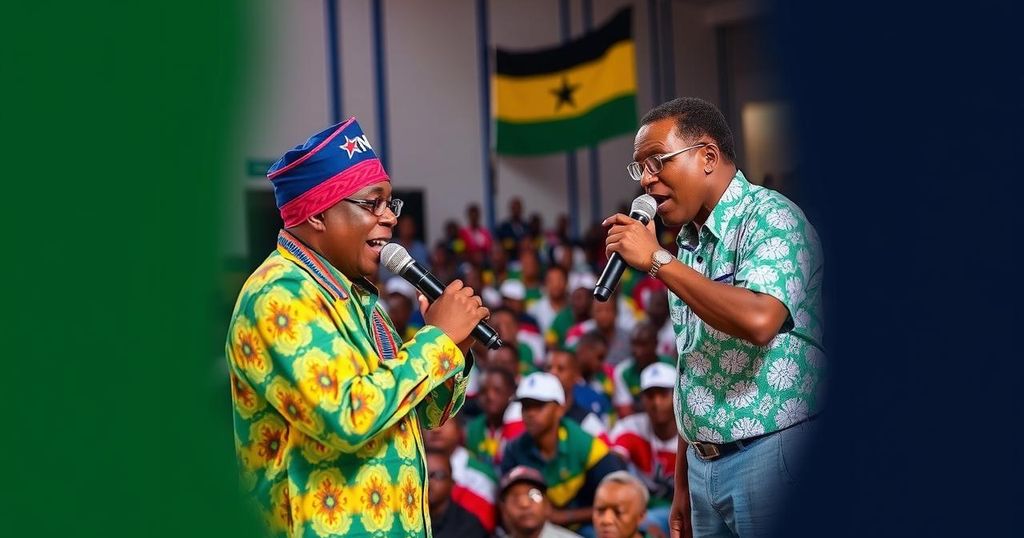Financing Elections in Ghana: Costs, Corruption, and the Need for Reform
Ghana’s upcoming elections are marked by significant financial demands, with recent estimates indicating the cost to win the presidency could reach GH 1.5 billion ($100 million). The Electoral Commission’s proposed budget for the 2024 elections is GH 786.9 million ($52 million) amid economic challenges. Concerns regarding financing sources, including potential corruption, highlight the urgent need for legislative reforms in campaign funding to ensure electoral integrity.
The ongoing discourse regarding the financial implications of elections in Ghana highlights growing concerns over election financing. Political stakeholders worry that large sums of money involved in campaigning may favor corruption and undermine the integrity of democratic processes. Recent research from the Centre for Democratic Development indicates a pressing need for improved regulation of campaign financing, particularly to combat illegal funding sources.
In the previous general elections of 2020, Ghana’s Electoral Commission dedicated approximately GH 760 million (about $51 million) to election-related activities. For the forthcoming 2024 elections, there is a proposed budget of GH 786.9 million ($52 million), alongside an additional request of GH 140 million ($9.3 million) for essential equipment and personnel training. This increase reflects the growing costs associated with conducting elections amidst economic challenges.
A survey conducted by the Centre for Democratic Development detailed that the financial commitment to win the presidency could soar to GH 1.5 billion ($100 million). Concerns have been raised about the sources of this financing, where political backing is often driven by illicit means. Historical practices have also shown that parliamentary candidates must budget at least GH 9 million ($600,000) for their campaigns.
In terms of political party legislation, the Political Parties Act of 2000 establishes guidelines on funding sources; nevertheless, substantial loopholes remain. Current laws prohibit foreign contributions but inadequately address the collection of funds from illegal channels. Consequently, while candidates must report aggregate funding sources, they are not obliged to disclose the identities of their sponsors.
Candidates can expect various expenses during their campaign, including filing fees that range significantly, advertising costs spanning from GH 4,000 ($267) to GH 100,000 ($6,600) for media engagements, and investment in constituency development projects. Furthermore, expenditures for campaign rallies and recruitment of polling agents are also substantial.
In light of these rising financial demands, calls for reforming campaign financing laws are becoming more pressing. Unless legislative changes are implemented, election financing will likely continue influencing Ghana’s political landscape significantly, posing challenges to a fair electoral process.
The financial aspects of elections in Ghana reflect broader issues within African democracies concerning campaign financing and corruption. As elections become increasingly costly, the implications of such financing on candidates and overall electoral integrity create substantial concerns. The Centre for Democratic Development highlights the potential dangers associated with unlawful funding and emphasizes the necessity for legislative reforms to ensure transparency and accountability in political funding. Moreover, the considerable amounts being spent raise critical questions about the viability and sustainability of election financing in a country grappling with economic difficulties. This context is essential for understanding the dynamics at play in the upcoming Ghana elections and the potential for corruption as funding sources remain inadequately regulated.
In conclusion, the rising costs associated with conducting elections and winning offices in Ghana pose serious concerns about the electoral integrity. The potential for corruption and the influence of illicit funding sources require immediate attention. Serious reforms in campaign financing legislation are crucial for ensuring transparency and leveling the political playing field. If these issues remain unaddressed, the financial burden of elections could continue to undermine the democratic process in Ghana.
Original Source: www.bbc.com




Post Comment